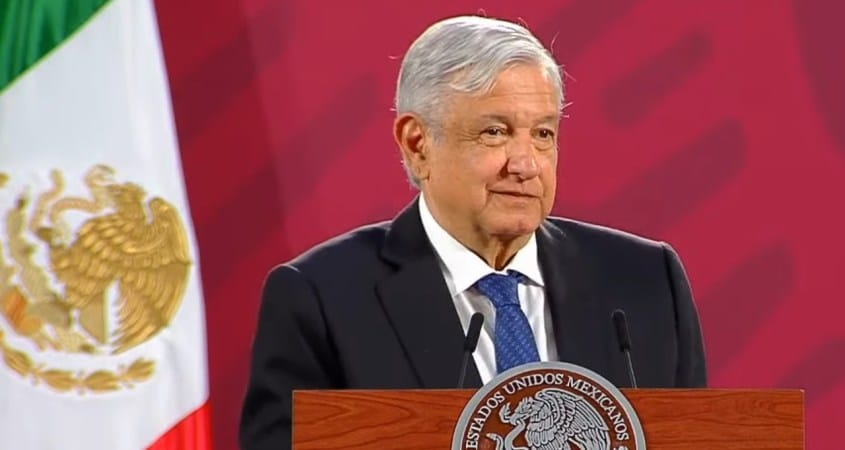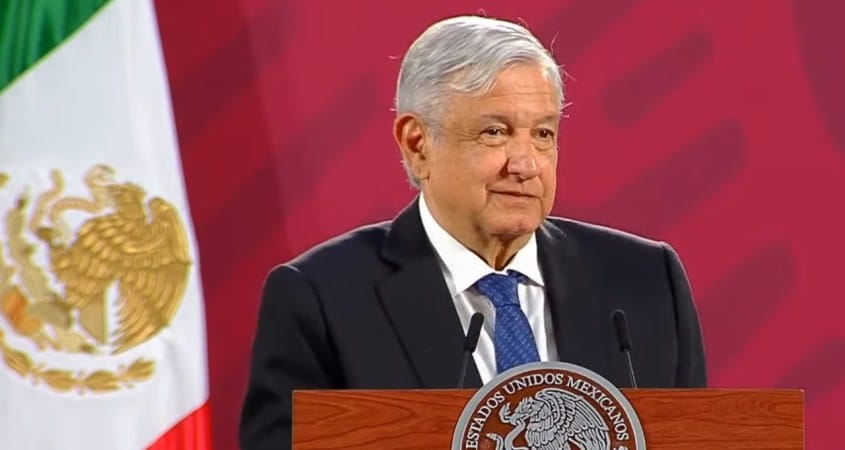A nasty spat has emerged between the US and Mexican governments about alleged official corruption and drug trafficking. The latest incident began on October 16, 2020, when US authorities arrested Mexico’s former defense secretary, Gen. Salvador Cienfuegos Zepeda, at Los Angeles International Airport on drug trafficking and money laundering charges. Cienfuegos Zepeda was a major player in Mexico’s military and political affairs, leading the country’s armed forces for six years under former president Enrique Peña Nieto (2012-2018).
President Andres Manuel Lopez Obrador’s government protested, contending that Washington overstepped its authority and arguing that the allegations against Cienfuegos Zepeda were flimsy, at best. Lopez Obrador himself accused the Drug Enforcement Administration (DEA) of “meddling” and failing to take any responsibility for its own long-standing relationship with the general. The case took an unexpected turn on November 17 when the US Justice Department, apparently responding to Lopez Obrador’s complaints, abruptly withdrew the charges and returned Cienfuegos Zepeda to Mexico.
But US drug warriors were not content to let tensions subside. Instead, they threatened to revive the prosecution of Cienfuegos Zepeda. The Justice Department and the DEA were especially upset when the Mexican government released details from shared documents that indicated just how flimsy Washington’s case might be. Angry US officials were adamant that they didn’t appreciate such unilateral efforts at transparency, and they hinted darkly that the move might jeopardize relations. Lopez Obrador responded with renewed, pointed criticism of Washington’s growing pressure. He also escalated his own criticism of Washington’s corruption allegations against Cienfuegos Zepeda, now accusing the DEA of “fabricating” the charges.
This was hardly the first time that US leaders adopted bullying tactics toward Mexico (as well as other countries) about aspects of the drug war. It also seemed more than coincidental that the new round of pressure coincided with Mexico’s growing receptivity to decriminalization of drugs, including legalization of marijuana cultivation and recreational use. DEA and other committed drug warriors are not happy about that development.
Indeed, the tone-deaf quality of the Trump administration’s conduct toward Mexico on the drug issue was striking. Admittedly, the level of drug-related violence in Mexico has reached alarming proportions, as I have documented here, here, and here. But US leaders steadfastly refuse to accept the reality that the growing strength of the violent Mexican drug cartels is the inevitable result of the lucrative consumer black market that Washington’s own drug prohibition policies have created.
Instead, the Trump administration pressured the Mexican government to further militarize its response to the cartels. At the moment that Mexico appeared to be adopting a less militant approach to the issue of illegal drugs, Trump published a tweet stating that “this is the time for Mexico, with the help of the United States, to wage WAR (sic) on the drug cartels and wipe them off the face of the earth. We merely await a call from your great new president! [Lopez Obrador]” He added: “If Mexico needs or requests help in cleaning out these monsters, the United States stands ready, willing & able to get involved and do the job quickly and effectively.” It was not entirely clear what Trump was offering, but it appeared to be at least CIA counterinsurgency assistance and perhaps even a direct role for US troops. In any case, Lopez Obrador politely but firmly rejected the offer.
Key congressional leaders clearly had a more extensive US security role in mind. In two interviews on Fox News, Sen. Tom Cotton (R-AR) warned ominously: “If the Mexican government cannot protect American citizens in Mexico, then the United States may have to take matters into our own hands.” Cotton did not seem overly concerned about whether the Mexican government wanted greater US involvement.
Washington’s abrasive behavior toward Mexico (and other hemispheric neighbors) has a long, dirty history. One graphic example occurred in 1969, even before President Richard Nixon formally declared a “war” on drugs two years later. Washington sought to obtain Mexico’s cooperation for a new program of US aerial reconnaissance of suspected drug fields and for “chemical crop destruction” efforts. At a bilateral meeting in June 1969, Nixon administration officials presented Washington’s “request.” Watergate conspirator G. Gordon Liddy, one of the Treasury Department high-level officials at that meeting, recalled what happened. “The Mexicans, using diplomatic language of course, told us to go piss up a rope.” The Nixon administration, Liddy emphasized “didn’t believe in the United States’ taking crap from any foreign government. Its reply was Operation Intercept.”
That measure was the application of a maximum-right-to-search policy at the border. Soon, traffic and commerce between the two countries ground to a halt. Cars (and especially large trucks) were subjected to detailed searches, and delays at border crossings ballooned to 6 hours or more in 100 degree heat. Not surprisingly, Mexico soon capitulated to the US policy demands. Liddy was candid about the exercise. “It was an exercise in international extortion, pure and simple, designed to bend Mexico to our will.”
The recent incidents indicate that while the tactics may have become a little less crude, the underlying objective remains the same. So, too, does the underlying arrogance and bullying mentality. Drug warriors continue to be the quintessential Ugly Yankee.
Reprinted with permission from Antiwar.com.


